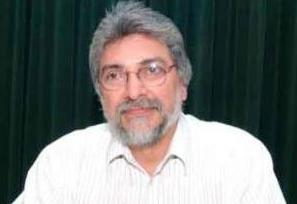Lugo defies one-party rule, Vatican to win Paraguay vote
 Asuncion, Paraguay - While Fernando Lugo speaks with the soft tone characteristic of many Roman Catholic priests, his win in Paraguay's presidential election was trumpeted as a political earthquake that ended the 61-year rule of the conservative Partido Colorado.
Asuncion, Paraguay - While Fernando Lugo speaks with the soft tone characteristic of many Roman Catholic priests, his win in Paraguay's presidential election was trumpeted as a political earthquake that ended the 61-year rule of the conservative Partido Colorado.
Sunday's vote opened "a new page in national political history," said the candidate who took on one-party rule and defied the Vatican to run.
"We are convinced that Paraguay has a right to better horizons," he said. "We have felt it in the pain, in the tears of so many mothers, the disenchantment of so many young people and the suffering of so many children."
Lugo's insistence on the need for profound changes has led many of his conservative critics to charge that he resembles left-wing populist Presidents Hugo Chavez of Venezuela and Evo Morales of Bolivia.
But Lugo, 56, who decided to resign as a bishop in December 2006 to pursue a political career, said he saw himself as a political moderate.
"They may identify me with the left for having accompanied the fights of those most impoverished in the region where I have carried out my pastoral work, but I like to put myself in the centre," Lugo said.
"I like to say that Paraguay must have its own process," he said before his election win. "It must gradually create a process that is different from those of other countries, be they Venezuela, Ecuador or Bolivia."
According to preliminary official results, Lugo obtained 40.5 per cent of Sunday's vote ahead of the 31.1 per cent for ruling party candidate Blanca Ovelar.
He was cautious Sunday about claiming victory and called upon his followers to celebrate with moderation.
Caution also permeated his words before the vote, when he warned of tough work ahead.
"The very exit from government of the Partido Colorado is important, but it does not guarantee a real change, a change of the production system, the economic system, the political system of democratic participation," he said.
Lugo was ordained a priest in August 1977, and in March 1994, he became bishop of San Pedro, one of the poorest dioceses in Paraguay, where he remained until 2005.
In March 2006, he led a large demonstration against President Nicanor Duarte Frutos, who he is now set to succeed, and shortly afterward, he received a petition backed by 100,000 people, asking him to run for president.
Months later, he resigned from his priestly duties, and on Christmas Day that year, he announced in a speech that he was set to join "the service of the Paraguayan people through politics."
The Vatican did not accept his resignation and instead opted to sanction him for abandoning his duties.
He ran for president with the support of the Patriotic Alliance for Change, a coalition of 10 political parties and more than a score of social organizations from the left, centre and right of the political spectrum led by the Authentic Liberal Radical Party, Paraguay's main opposition party.
Lugo said he favours an economic system that allows for both publicly and privately owned enterprises and approves of private property and private investment, including foreign capital, which he said should "cooperate with the country's development."
As to regional integration, the former bishop favours a stronger and larger Mercosur trade bloc, in which Paraguay is a member along with Brazil, Argentina, Uruguay and Venezuela - the latter pending ratification.
"It must not only be a commercial or economic integration bloc, but it must be strengthened as a social and cultural Mercosur," Lugo said.
Before he was elected to lead Paraguay until 2013, the former bishop said he was aware of the role that many compatriots attributed to him.
"A great hope has been put in motion, and we are not going to let it down," Lugo said. (dpa)